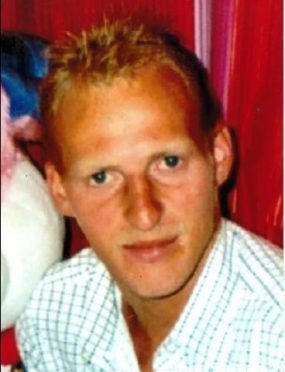Two men were jailed for life yesterday after they savagely beat a victim to death in a brutal murder.
Lithuanian Tomas Gulbinavicius turned on his fellow countryman Aleksejus Zarskus, 42, with his Latvian accomplice Janis Karajevs and punched, kicked and stamped on him after a drunken row.
A judge ordered that Karajevs, 30, who has six previous convictions for assault and been jailed three times, should serve at least 14 years in prison.
Lord Uist also ordered Gulbinavicius, 33, should serve a minimum term of 13 years imprisonment for his role in the murder.
The judge told the pair: “You must not assume you will be released at the end of the punishment part.
“You will be released only when it is considered no longer necessary for the protection of the public that you continue to be confined in prison.”
Gulbinavicius and Karajevs had both denied murdering Mr Zarskus in an attack on him on January 15 at flat on Aberdeen’s King Street, in Aberdeen, but were both found guilty by a jury in the city.
During the course of the trial at Aberdeen High Court the pair blamed each other – Gulbinavicius claimed he saw Karajevs carrying out an attack on his housemate and intervened to stop him.
Karajevs claimed he saw Gulbinavicius strike Mr Zarskus but had little recollection of events that night.
Lord Uist said: “After you had assaulted him you did nothing to seek medical help for him and failed to answer the door to the police who had to force entry to the house.”
He said someone in the flat downstairs said the commotion sounded like “somebody was coming through the ceiling”.
The judge said he took into account that no lethal weapon was used and that the killing was not premeditated but noted it was a “ferocious” attack.
Defence solicitor advocate Murray Macara QC, for Gulbinavicius, said Gulbinavicius had expressed “a genuine degree of remorse” over the victim’s death. “He was clearly friendly with this individual and gave him accommodation at a time when he was homeless,” he added.
Mr Macara said: “No doubt alcohol and excessive consumption of alcohol contributed substantially to everything. Everything points to the fatal assault arising spontaneously out of an argument.”
Bill Adam, counsel for Karajevs moved to north-east Scotland following a downturn in the Latvian economy and had been disowned by his family, apart from a grandmother, following his conviction.
“He is very disturbed about the very real prospect that he will not see her again,” he said. She is too elderly to travel from Latvia to visit him.
Mr Adam said Karajevs now fully realised he has had issues with drink but still maintained his innocence of the crime.
